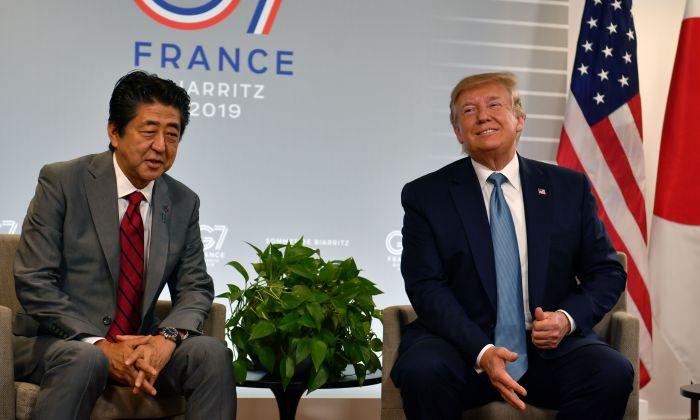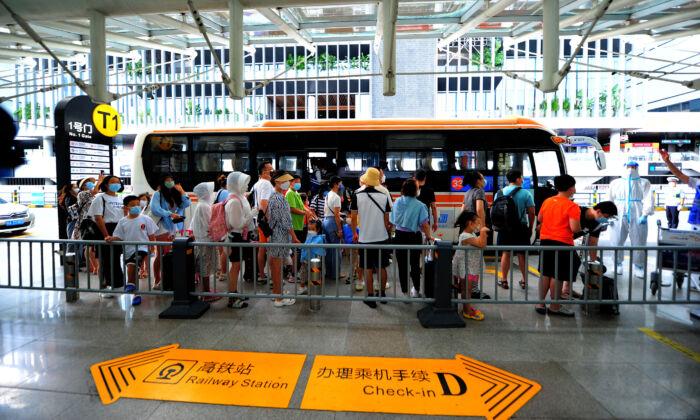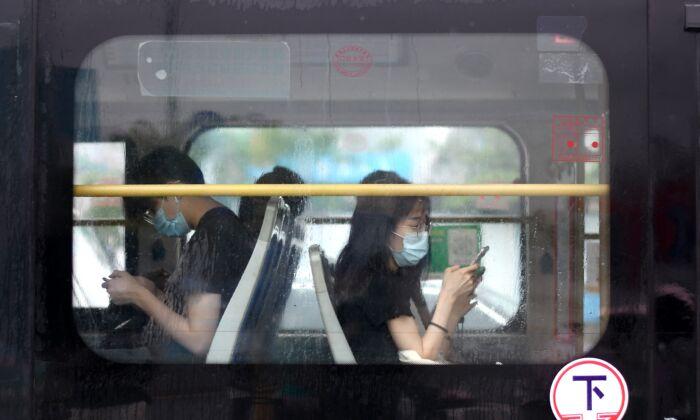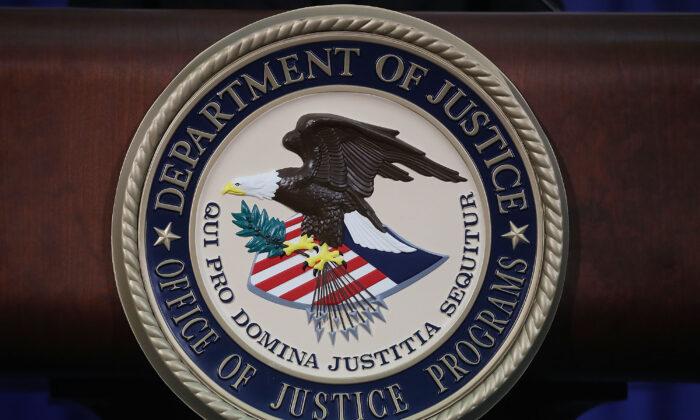US-Japan Deal
Trump and Abe held a meeting on the sidelines of the G-7 Summit in Biarritz, southwestern France on August 25.After the meeting, the two state leaders announced to media that they reached an agreement for a trade deal, which Abe said he hoped would be formally signed in New York next month.
“We still have some remaining work that has to be done at the working level, namely finalizing the wording of the trade agreement and also finalizing the content of the agreement itself,” Abe said. “[We’ll sign] the agreement on the margins of the UN General Assembly at the end of September.”
Trump applauded the deal. “It’s a very big transaction, and we’ve agreed in principle. It’s billions and billions of dollars. Tremendous for the [American] farmers,” he said.
U.S. Trade Representative Robert Lighthizer told media that currently, Japan imports $14 billion worth of American agricultural products. Abe agreed to have Japan open up its market to more U.S.-made beef, pork, wheat, dairy products, and wine.
“It will lead to substantial reductions in tariffs and non-tariff barriers across the board,” Lighthizer said.
Abe said Japan’s private sector would be glad to purchase excess U.S. corn, because insect pests have affected the crop yield of some agricultural products in Japan.
Analysis
U.S.-based China affairs commentator Tang Jingyuan believed that by Japan agreeing to buy up U.S. agricultural goods, Beijing would lose its chief bargaining chip—as it has imposed tariffs on those same U.S. crops.After the United States announced tariffs on Chinese goods to punish the Chinese regime for its unfair trade practices, U.S. crops were the first category of goods that Beijing announced retaliatory tariffs on.
Tang noted that China’s trade negotiators have consistently used the promise of buying more U.S. agricultural products as a condition to exchange for Washington’s concessions. “This is the only effective card that the Chinese regime has in the U.S.-China trade talks,” Tang said.
Now that Japan has agreed to buy those crops from the United States, the latter has a steady customer. This has rendered Beijing’s bargaining chip useless, Tang added.






Friends Read Free